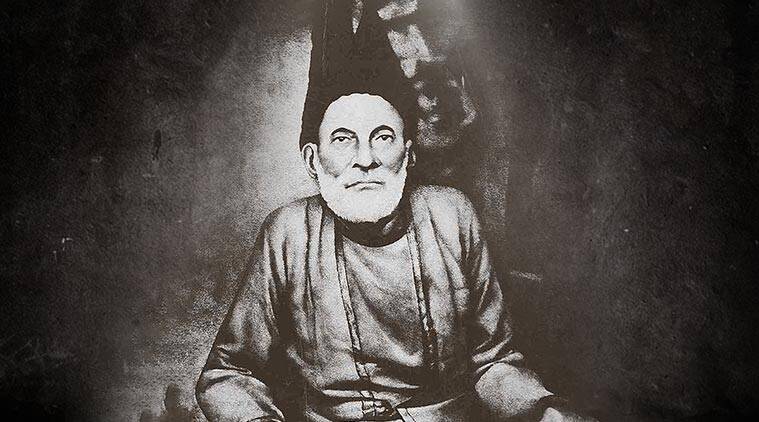Indian literary domain is filled with writers summarising the essence of life in barely a few lines. Most of them were well respected and acknowledged, while others’ legacy became a part of tea-time disagreements. Among those controversial writers, Mirza Ghalib holds a specific place among his critics as well as supporters.
Descendent of economic migrants, Ghalib was faced with harsh truths during his early days
Mirza Ghalib was born as Mirza Asadullah Baig Khan on 27th December (1797) in Kala Mahal, Agra. He was a third-generation Descendent of an economic migrant family. His grandfather had fled to India from Samarkand during the reign of Ahmad Shah (1748-54AD). Ghalib’s father later married Izzat-ut-Nisa Begum, a Kashmiri by ethnicity. He later spent a major chunk of his life at his father-in-law’s home, until his death in 1802.
Ghalib’s personal life was full of ups and downs. He had a child marriage with Umrao Begum. Historical evidences suggest that Ghalib and his wife were starkly different from each other. Ghalib’s wife is believed to be an orthodox Muslim woman, who was always worried about the consequences of her actions. Meanwhile, Ghalib spent a major chunk of his life migrating from one philosophical thought to another. As is the case with most people known for their poetic mind, Ghalib never allowed anyone to decode his philosophical inclinations.
Ghalib— A nihilism inspired hedonist
Though it was tough to get hold of Ghalib’s literary taste, if his actions were any kind of hint, then it would not be wrong to claim that Ghalib believed in the nihilism of life. Nihilism is a philosophy that propagates that human life has no inherent meaning and, thus, it is not worthwhile to follow any religious or moral principles.
Maybe, it’s the intrinsic belief in the nihilism that made way for his hedonistic lifestyle. A hedonist believes only in pursuit of immediate pleasure and sensual self-indulgence. When faced with the question of the negative and painful consequences of his hedonistic lifestyle, he came up with the argument, “The prison of life and the bondage of sorrow are one and the same Why should man be free of sorrow before dying?”
Habitual drinker and Gambler
Ghalib was a stern believer that no one can become a poet until he/she indulges in illogical and sensual activities. According to him, life’s default motive is social humiliation. Criticising Sheikh Shahbai, an orthodox poet, he had said, “How can Sahbai be a poet? He has never tasted wine, nor has he ever gambled; he has not been beaten with slippers by lovers, nor has he ever seen the inside of a jail.”
Ghalib was a habitual drinker and gambler. Due to his habits, his house was raided in 1841. Despite the raid, he did not put an end to his habit of gambling, which led to him getting detained for six months in 1847.
Philosophy affected his personal as well as political life
Ghalib’s philosophical tilt of not sticking to a particular frame of reference was well manifested in his personal life as well. Womaniser was the adjective given to him during his reign at Mughal Court. Similarly, his incapability to form a permanent bond with anyone resulted in him not having a permanent house in Delhi. He kept changing his rented accommodations throughout his life.
Like his personal life, his political views were also hazy. He spent his whole life trying to balance his interests with uprising Britishers and declining Mughals.
Ghalib had seven children, but none of them lived past infancy. He also witnessed the fall of Bahadur Shah Zafar, the last Mughal in front of him. A romantic nihilist at his heart, Ghalib’s breathed his last on 15th February 1869, the very next day of Valentine’s Day, a day reserved for romantic love in Christianity.
